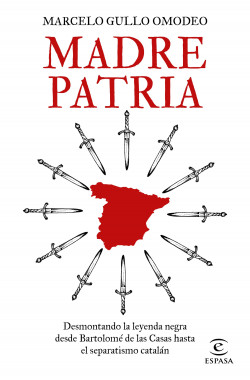So this period of time, late XV century and early XVI is of great importance because the repercussions are still felt across the world, that is, the rising of the British Empire and after that the influence of the United States in an even greater manner, so history had to be rewritten and twisted to make the "enemy" be someone else, in this case, the Spaniards.
That the Spaniards had a different approach to what the colonies were and how to integrate them to Spain, as opposed specially the British themselves, but also the Dutch, Belgians and even the French, makes me wonder if there was something about the Spanish efforts that made them a target for centuries long vilification, propaganda and a rough treatment overall. Was the way they intermixed with the natives and how they treated them (though of course not perfect) not what the PTB of that time had in mind for the New World?
And what about the native population of the Americas? Isolated, perhaps just as the African nations were, and as unprepared as both the Far East Asians and Africans themselves were in the face of the conquering efforts from the European colonizers.
There is some fascination in the fact that millions of people were totally unaware (apparently) and that so easily were dominated by smaller armies and countries, though it is true that the newcomers had more potent and effective weaponry, and the locals were at war between themselves and had their own agenda against their neighbors. But still, why was that? Was the world so disconnected or was there something else going on?
I tend to think that although conquest is common throughout history, during this time entire continents were affected starting in the 16th century: Africa, The Americas and Asia by the same powers, after all the Courts of Europe were all interconnected by bloodline and marriage and competing for dominance between them. Then again, how or why were the Spanish different?
That the Spaniards had a different approach to what the colonies were and how to integrate them to Spain, as opposed specially the British themselves, but also the Dutch, Belgians and even the French, makes me wonder if there was something about the Spanish efforts that made them a target for centuries long vilification, propaganda and a rough treatment overall. Was the way they intermixed with the natives and how they treated them (though of course not perfect) not what the PTB of that time had in mind for the New World?
And what about the native population of the Americas? Isolated, perhaps just as the African nations were, and as unprepared as both the Far East Asians and Africans themselves were in the face of the conquering efforts from the European colonizers.
There is some fascination in the fact that millions of people were totally unaware (apparently) and that so easily were dominated by smaller armies and countries, though it is true that the newcomers had more potent and effective weaponry, and the locals were at war between themselves and had their own agenda against their neighbors. But still, why was that? Was the world so disconnected or was there something else going on?
I tend to think that although conquest is common throughout history, during this time entire continents were affected starting in the 16th century: Africa, The Americas and Asia by the same powers, after all the Courts of Europe were all interconnected by bloodline and marriage and competing for dominance between them. Then again, how or why were the Spanish different?

